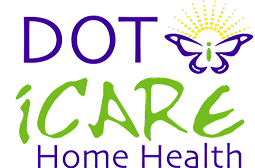F.A.S.T. – Signs of Stroke

Do you know the signs? F.A.S.T. stands for:
Face drooping,
Arms heavy,
Slurred speech,
Time to call (is critical…act FAST!)
Cardiovascular disease is the leading cause of death. A stroke occurs when blood supply to the brain is blocked. Brain cells start to die, causing disability and often death. That’s the bad news – the good news is this can be prevented!

There are factors such as age and heredity that aren’t in your control. However, many factors are in your control, such as weight, diet, exercise, and lifestyle. Some helpful advice: don’t smoke, keep alcohol consumption to a minimum, and try to reduce stress as much as possible.
As you may know, poor diet is a key factor in heart disease. You might be surprised to learn, however, that poor diets can reduce life expectancy by up to seven years! Diets low in fibre, and high in sodium, are a recipe for disaster.
Tips For A Heart Friendly Diet
- Increase fibre by consuming more fruits & veggies – Mother was right when she made you eat your veggies! Now that the warmer weather is upon us, keep raw veggies on hand as snacks. It’s also a good idea to eat more salads and incorporate as many vegetables as you can. Vegetables contain fibre, which aids heart health by reducing cholesterol, as well as antioxidants that fight cancer.
- Consume grains like oatmeal and quinoa – they help to lower blood pressure.
- Read food labels – cut out trans fats! Cookies, pastries, and the like all have trans fats. Better yet, limit the amount of food products that have a label, and stick to whole foods instead.
- Watch your sodium! Again, read labels and do a comparison – if you have a no salt option, always choose that one. Taste your food before randomly adding salt to it.
- Portion control: use smaller plates if you need to. If you’re the type who needs to load up the plate, then make sure half the portion is vegetables.
- When cooking, choose to steam, bake, or grill instead of frying.
- Keep restaurant visits to a minimum; save eating out for special occasions. Restaurant meals are high in fat and sodium. You would be shocked at how much sodium is in a seemingly healthy lunch at your favorite coffee franchise. Soups average around 600 mg, with chili having 1180 mg. Sandwiches range from 500 – 2000 mg of sodium! The recommended daily total is 1200-1300 mg!
Tech Tips From The Heart
- For the tech-savvy senior, check out the newest apps for your smart phone or tablet, and start tracking the content of your meals. We’d also suggest you count the steps you walk in a day, and even monitor your sleep habits. Some health devices that offer these features can be worn on your wrist, disguised as a watch.
- The latest innovation for home health is the health espresso app that reminds you to take your medicine, attend doctors’ appointments, and can measure your blood pressure (among other real-time body trackers)! A secondary user can provide the oversight necessary to promote prevention, before treatment is needed.
- To further prevent heart disease, look for a supplement that has arterial cleansing properties. These products help dissolve arterial plaque that can lead to heart disease and stroke. Taken as a daily multi-vitamin, this is an excellent preventative measure.
Tie up your sneakers, put on your wrist monitor and get outside now that the weather is good. Exercise is the next critical component to keeping heart disease at bay!
Do You Need At-Home Healthcare? If you, a family member, or someone you know suffered a stroke and needs care at home, talk to us to explore at-home healthcare services. Our care plans are customized to suit individual needs.

